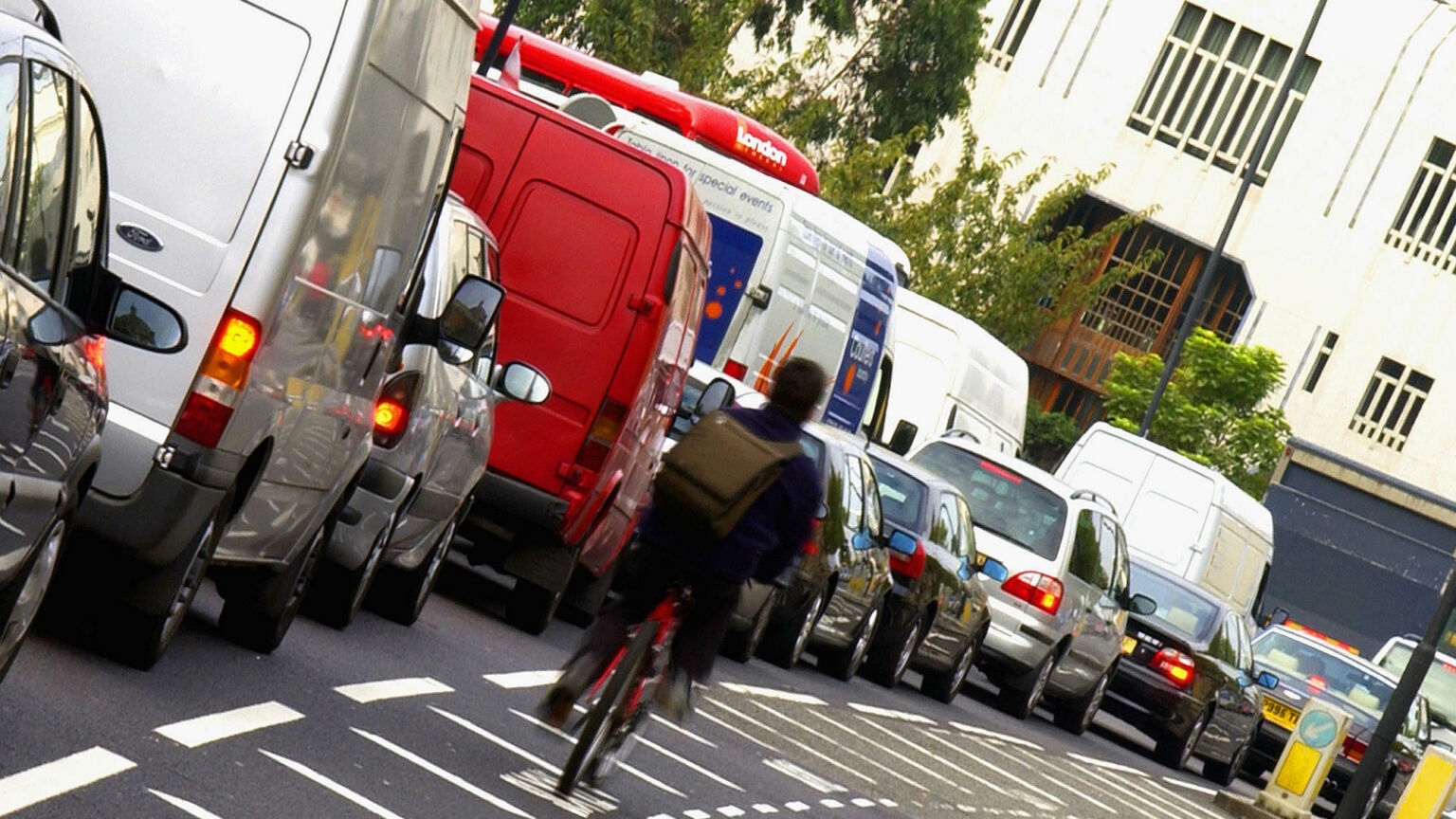The war on motorists is out of control
Making it more difficult for people to take short car journeys will hit the elderly and immobile the hardest.

Want to read spiked ad-free? Become a spiked supporter.
As one of his last acts before resigning as prime minister, Boris Johnson appointed Chris Boardman to be the UK’s first travel tsar – or ‘national active travel commissioner’, to give Boardman his full title. The government has tasked the 1992 Olympic gold-medal-winning cyclist with getting people out of their cars and on to bikes or walking instead.
As part of this, Boardman, with £2 billion at his disposal, will help local councils build more cycle lanes and safer pedestrian walkways to encourage walking. That all sounds perfectly reasonable. Who could be opposed to improved pavements and more cycle lanes?
The problem with such initiatives, however, is that they are always framed in opposition to cars. Indeed, they are principally anti-car initiatives. So in his first interview since being appointed a couple of weeks ago, Boardman made a point of saying that people are ‘overusing’ cars. ‘We have to drive less. A lot less’, he said. He even insisted that cars should not be used for any journey shorter than a mile.
Boardman seems incapable of grasping the fact that many people need to use cars for short distances. There are those in their old age, or who suffer from a disability, who may find even a minute’s walking impossible. Then there are others who will feel that heavy rain, hail, blizzards and ice can make a short journey on foot uncomfortable and even dangerous. And there are some people who understandably may not want to walk even a short distance on ill-lit streets at night. Then, of course, there are delivery drivers, whose journeys often consist of multiple short hops.
So there are many very good reasons why people choose to get in the car for journeys shorter than a mile. And yet the government is so determined to stop them, it is willing to spend £2 billion to do so.
It all seems so wasteful. Millions of motorists and many cyclists might actually prefer Boardman’s cash to be spent on repairing Britain’s potholed and cracked road system. But instead of improving the basics of the UK’s transport infrastructure, the government seems keener on encouraging people not to use it instead.
Boardman is just the latest face to front the government’s anti-car campaign. Keen cyclist and one-time hack Andrew Gilligan was appointed cycling commissioner for London in 2013 by then mayor Boris Johnson. In 2019, Johnson, as prime minister, promoted Gilligan to national transport adviser in the Downing Street Policy Unit. Gilligan is widely viewed as responsible for pushing anti-car policies like ‘low-traffic neighbourhoods’.
It should be possible to cater for motorists and cyclists. For instance, roads could be widened to accommodate both. But such is the anti-car fanaticism of policymakers that they can only ever countenance widening cycle lanes at the expense of roads – just to make driving as difficult as possible.
Transport policymakers seem to think it is their way or the highway. They may well find that many car-driving Brits much prefer the highway.
James Woudhuysen is visiting professor of forecasting and innovation at London South Bank University.
Picture by: Getty.
Who funds spiked? You do
We are funded by you. And in this era of cancel culture and advertiser boycotts, we rely on your donations more than ever. Seventy per cent of our revenue comes from our readers’ donations – the vast majority giving just £5 per month. If you make a regular donation – of £5 a month or £50 a year – you can become a and enjoy:
–Ad-free reading
–Exclusive events
–Access to our comments section
It’s the best way to keep spiked going – and growing. Thank you!







Comments
Want to join the conversation?
Only spiked supporters and patrons, who donate regularly to us, can comment on our articles.